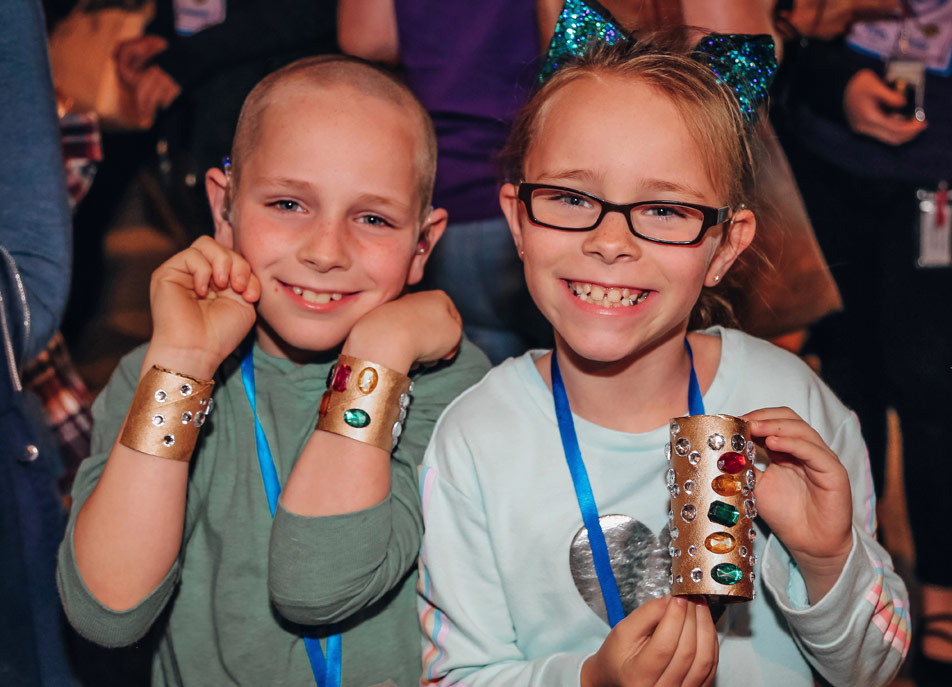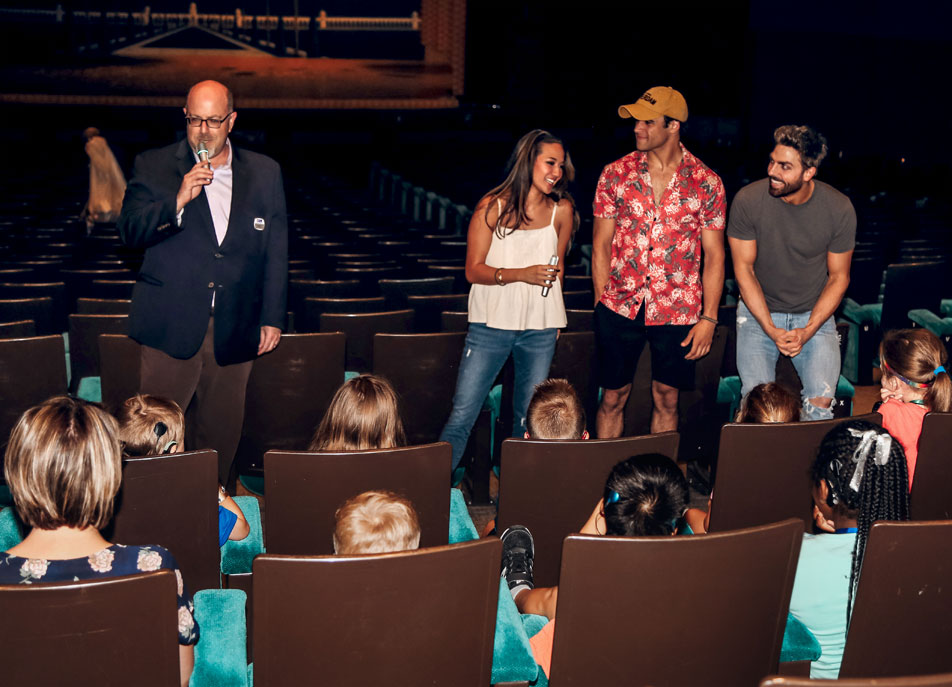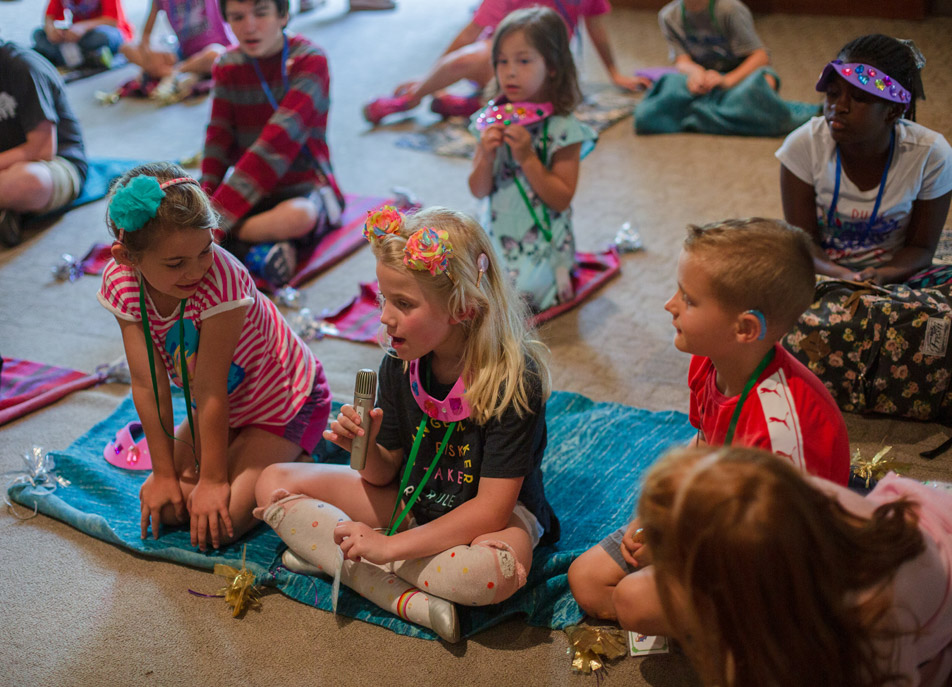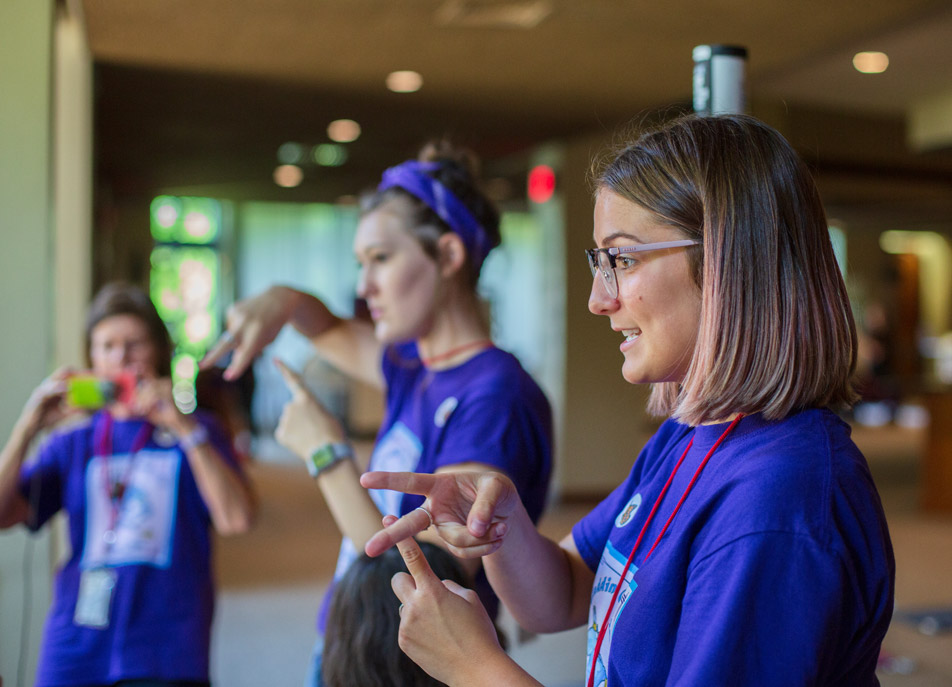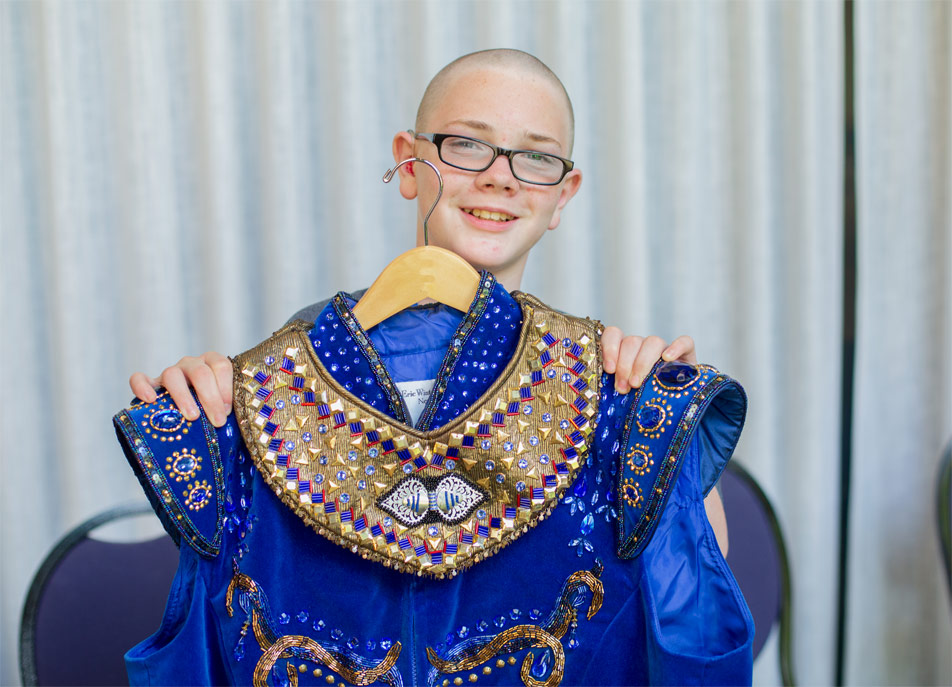Arts and crafts, learning new songs and having fun with friends are the usual stuff of summer camps. A recent University of Texas at Dallas Aladdin Camp, however, was extra special because the children — most of whom wore hearing aids or cochlear implants — had the opportunity to learn about theater from the Broadway touring company for Disney’s “Aladdin.”
The Aladdin Camp is one of several camps offered for children with special needs by the Callier Center for Communication Disorders. The camp was a collaboration between Callier, the audiology doctoral program in the School of Behavioral and Brain Sciences (BBS), Dallas Summer Musicals and Disney. Twenty-five children, ages 5 through 17, attended the camp, held at the Music Hall at Fair Park in Dallas.
“This was a great opportunity to teach children about behind-the-scenes theater while also educating them about how they can enjoy theater performances with hearing-assistance equipment,” said Dr. Linda Thibodeau, a professor in BBS and camp co-director.
“This is a place where the kids feel uniformity — where they feel the same as everybody else. I think it’s very important for them to know that they are not the only ones, and they can be reassured that there are other people out there going through the same thing.”
Dr. Andrea Warner-Czyz, associate professor in the School of Behavioral and Brain Sciences
Each year, Thibodeau leads a camp or weekend retreat that helps adults or children with hearing impairment better utilize hearing technology and advocate for themselves in public settings. She told the Aladdin campers that the song “Speechless,” sung by Princess Jasmine in the show, had a great message about speaking up when they need help.
“We related that song to how the children can indicate when they need devices or when they might need extra help in class,” Thibodeau said.
Advocacy discussions at the camp were mixed with several sessions that featured performers, costumers and technicians from the touring “Aladdin” show, which was in Dallas for 2½ weeks. In addition, campers worked on craft projects and learned to dance and sing with sign language to “Aladdin” songs, which they performed for the Music Hall staff on the last day of the camp.
One of the highlights was an opportunity to meet with three of the lead cast members from the show: Clinton Greenspan (Aladdin), Kaenaonalani Kekoa (Jasmine) and Colt Prattes (Kassim). The children asked a number of questions, including how cast members are able to change costumes so quickly and how often they had to rehearse.
Campers also attended a matinee performance of the stage show and, the next day, a showing of the 2019 “Aladdin” movie. In addition to using wireless technology from Thibodeau’s Hearing Health Lab throughout the week, the campers were able to connect to the theater’s sound system for optimal reception of the dialogue and songs.
Even with the opportunity to have special backstage access, see the shows and talk with the “Aladdin” cast, for many campers the highlight was the interaction with children like themselves who use hearing aids or cochlear implants.
“This is a place where the kids feel uniformity — where they feel the same as everybody else,” said Dr. Andrea Warner-Czyz, associate professor in BBS and camp co-director. “I think it’s very important for them to know that they are not the only ones, and they can be reassured that there are other people out there going through the same thing.”
Nicole Lee, whose daughter Emerson participated in the camp, called the experience amazing.
“She was so excited the night before, saying that she wasn’t going to have to explain to all the kids what her hearing aids were,” Lee said. “It means a lot to be around other kids that are like her — to not be singled out, as she usually is. It’s an amazing opportunity.”
